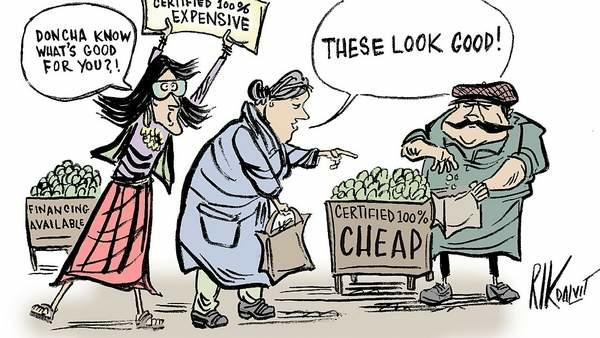
The departure of Soup CEO Denise Morrison is the fifteenth CEO change at a large packaged food company in the last two-and-a-half years. What do they all share in common? They apologized for being in business and chased a vocal consumer segment that hates them - the "nocebo" community that seeks out products based on what they claim not to have on the label.
They responded to claims by media that foods had to be all-natural and in a microwave pouch. They had to be artisan, niche brands. Apparently everything was going to need avocado if they wanted to gain mindshare among Millennials. In reality, food company marketing executives have allowed themselves to be ambushed by well-funded ideologues that have secret sources controlling them - names like Environmental Working Group, Center for Science in the Public Interest, The Non-GMO Project, and many more. Military training teaches one very important thing about ambushes - you don't hide, you don't try to placate, you charge.
Instead of charging the ambush, large food companies have tried to hide behind a tree. To address claims that a tiny amount of wealthy consumers are concerned about "preservatives", they began to take out preservatives. What they should have done is showed they are on the front line against food waste. Preservatives have been used for thousands of years precisely so food won't spoil. Instead, they conceded that "fresh" claims were better. And that meant they had to step outside their core competencies and manage harvesting cycles. Which is disaster.

Marketing executives at large food companies are being convinced the marketing imagery of niche food companies is real. And it is going to cost them their jobs. You don't win friends with salad, and you sure don't win friends with salad after it's been in a refrigerator for two days. Preserved food, in cans, have value.
It is not just with preservatives that they lost their way. Across the board, major food companies have done the worst possible thing - they believed if they simply adopted the "nocebo" mentality they would win over the consumers opposed to them. They did not realize they are in a war of extinction. General Mills learned that anti-science activists did not suddenly buy Cheerios because it threw on a Non-GMO label the same way ConAgra learned that anti-science activists wouldn't suddenly buy Manwich if the lining in the can had no BPA. It is not about the chemical, it is about the health halo. No wealthy elite is leaving Whole Foods and suddenly buying Campbell's Soup because it says "organic" on a label. And it isn't easy to just buy a healthy-sounding brand at a reasonable cost and make money at it - those companies got their market share by being alternatives to conventional products. Colgate-Palmolive can market Tom's of Maine as an edgy outsider in the natural ingredients space, but consumers know better.
It is about Sneetches and stars. The more stuff the label claims to be without, the more stars you get. But the bulk of Americans are not wealthy elites who are always laughing while they eat their salad, they instead about cost. CEOs pay the price for marketing failures, so the next generation should find marketing executives who believe in the product and aren't secretly ashamed of the business they're in.
At the end of the day, for the vast majority of Americans, this is the label that really matters. Embrace it. Stop hiding from it.

Credit and link: Capital Press



